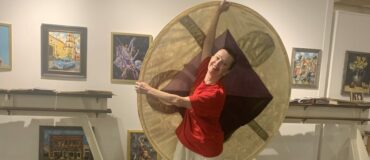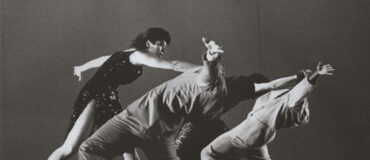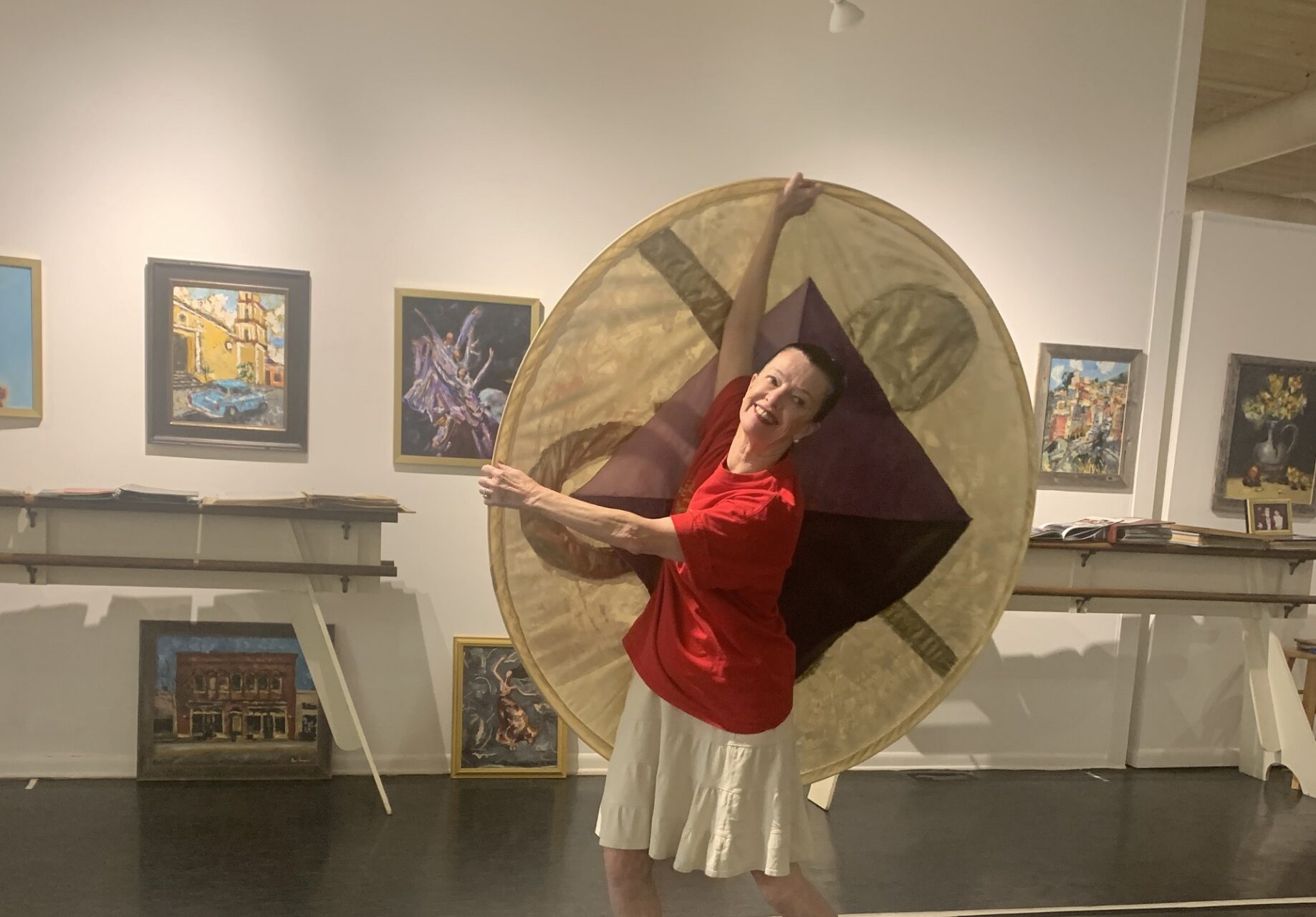By Yvette Ramirez
Yvette Ramirez is a 2021 Dance/USA Archiving & Preservation Fellow. Her Fellowship ran from June-August 2021 and was hosted remotely by DanceATL. Read more about the Fellowship program here. This is the first of three parts of Yvette’s blog.
December 17: Fellowship Reflections
There is something to be said for just exploring the varied layers and paths of a digital archive, whether following prompts determined by its interface design or led by sheer curiosity as one inputs keywords or sorts the dates/ titles of the queried records. As an archivist, however, my mind always first goes to the how and the why. Who is building these paths within the information networks we encounter? What type of labor – including affective – has been called upon? What resources are ultimately needed to facilitate access to digitized collections from say…my laptop? I encountered such questions during my work this past summer, as one of my earlier responsibilities during my fellowship with DanceATL was to conduct research on future narrators for their Pioneers in Atlanta Dance Oral History Project. This forthcoming community oral history project is envisioned to pay homage to modern and contemporary dance in metro Atlanta by acknowledging those who built the foundations of the city’s dance community today. This research would build upon past research to inform interview protocols – or as I like to call them memory maps – to guide the interviewer and narrator as the oral history interview progressed. In thinking of pioneers of Atlanta dance, naturally Dr. Mozel Spriggs is on this list. Credited with founding the Dance Program at Spelman College, she also, I would later come to learn, showed her dedication to dance in Atlanta by cultivating training opportunities for dancers as well as bringing renowned dance luminaries to the city of Atlanta.

Folk Dance Festival, 1966; Mrs. Spriggs, Dance Instructor, dancing with guest of the college
As this past summer approached, it was evident that with its evolving variants, COVID-19 was not going away anytime soon. In-person interviews were understandably less likely to occur as were visits to special collections as university libraries figured out their fall safety protocols. Not being from Atlanta nor familiar with it’s vast dance history, I searched the internet and came across a few articles in local Atlanta cultural papers and blogs commemorating her legacy, awards won, and a book passage on her friendship with Pearl Primus. I also came across broken url’s whose remaining fragments revealed a podcast interview with Dr. Spriggs from 2006 but where the audio file no longer remained, an example of how frequently information and content disappear from the internet:
Invalid URL, Reason: Domain not whitelisted
Fortunately for me, only a few years earlier in 2017, Our Story: Photographs and Publications of the Atlanta University Center had kicked off. This collaborative project between the Atlanta University Center Robert W. Woodruff Library, Digital Library of Georgia, Morehouse College and Spelman College Archives sought to digitize publications and photographs of Historically Black Colleges and Universities (HBCUs) in Atlanta in an effort to increase access to an under-documented yet important part of history. As a result, about 740,000 individual pages/items from dissertations, yearbooks, catalogs, bulletins, newspapers and magazines from 1880 to 2014 are now available online. My fellowship mentor, Spelman College archivist Holly Smith, was part of this almost three-year project and provided great insight on the mechanics and workflows that made this effort possible. For Spelman College, collections digitized included the Campus Mirror, Spelman Spotlight, and Spelman Messenger, as well as photographs of faculty, students, alumnae, and campus events. One particular collection consisted of never before seen photographs from the Department of Drama & Dance (now the department of dance & choreography and department of theatre & performance) from the 1930’s to the 80’s.

Dance Class with Nalini Aiyagari, circa 1977
This was the department that Dr. Spriggs ultimately retired from in 1991 as the Chair of the Fine Arts Division and the Director of Spelman’s Dance Program after 27 years of service. What makes this enormous digitization effort so much more meaningful to the work I was doing with DanceATL is that previous to this grant, Spelman had little to no online presence in terms of digitized archival content. Now despite being hundreds of miles away, I am able to visually explore the history of the Department of Drama & Dance via an interactive timeline which links back to the finding aid of a clicked record.
Due to metadata harvesting and OCR (optical character recognition) digitization, publications and newspapers from these collections are full-text searchable. This allowed me to search for specific keywords, thus providing a rich view of related campus activities including students’ perspectives, such as those from the Spelman Spotlight, the long-running student newspaper. As I cross-referenced dates or looked up visiting dance companies and residencies mentioned in other interviews or secondhand accounts, a fuller, richer picture emerged of Dr. Spriggs and her day-to-day work at Spelman. This documentation included master classes offered to Spelman students and performed for the greater Atlanta community by Pearl Primus, Dance Theatre of Harlem, and Alvin Ailey American Dance Theater, among many others, as well as Dr. Spriggs’ Dance Program for Children and the International Dance Enrichment Program she ran. A retirement note dedicated to her in the Spelman Messenger proudly echoed that it was Mozel who “introduced modern dance to Atlanta.”

Retirement note of Dr. Spriggs in the Spelman Messenger.

Children’s Dance Program, circa 1970
As I, for my own purposes, piece bits and pieces of history together,. I look for who was in conversation with one another, where they were, and what was shared. I think of the work DanceATL is doing with its community oral history project and see it as an extension of the work done by this team of archivists at Our Story that I was able to use and reference from for this project. Let us not default to the archive as an unmoderated space but instead see it as a tool to create accessible pathways of information.
Photos used by permission of Spelman College.
 Yvette Ramírez is an arts administrator, oral-historian, and archivist from Queens, NY. She is inspired by the power of community-centered archives to further explore the complexities of information transmission and memory within Andean and other diasporic Latinx communities of Indigenous descent. Her archival practice is rooted in recordkeeping practices that embrace a hyperlocal and liberatory praxis especially when working with identity-related collections. With nearly a decade of experience as a cultural producer, Yvette has worked alongside community-based and cultural organizations such as The Laundromat Project, PEN America, Make The Road New York and New Immigrant Community Empowerment. Currently, she is an MSI candidate in Digital Curation and Archives at the School of Information at The University of Michigan and currently works at the University of Michigan Library’s Digital Preservation Unit.
Yvette Ramírez is an arts administrator, oral-historian, and archivist from Queens, NY. She is inspired by the power of community-centered archives to further explore the complexities of information transmission and memory within Andean and other diasporic Latinx communities of Indigenous descent. Her archival practice is rooted in recordkeeping practices that embrace a hyperlocal and liberatory praxis especially when working with identity-related collections. With nearly a decade of experience as a cultural producer, Yvette has worked alongside community-based and cultural organizations such as The Laundromat Project, PEN America, Make The Road New York and New Immigrant Community Empowerment. Currently, she is an MSI candidate in Digital Curation and Archives at the School of Information at The University of Michigan and currently works at the University of Michigan Library’s Digital Preservation Unit.
____
We accept submissions on topics relevant to the field: advocacy, artistic issues, arts policy, community building, development, employment, engagement, touring, and other topics that deal with the business of dance. We cannot publish criticism, single-company season announcements, and single-company or single artist profiles. Additionally, we welcome feedback on articles. If you have a topic that you would like to see addressed or feedback, please contact communications@danceusa.org.
Disclaimer: Opinions expressed in guest posts do not necessarily represent the viewpoints of Dance/USA.






